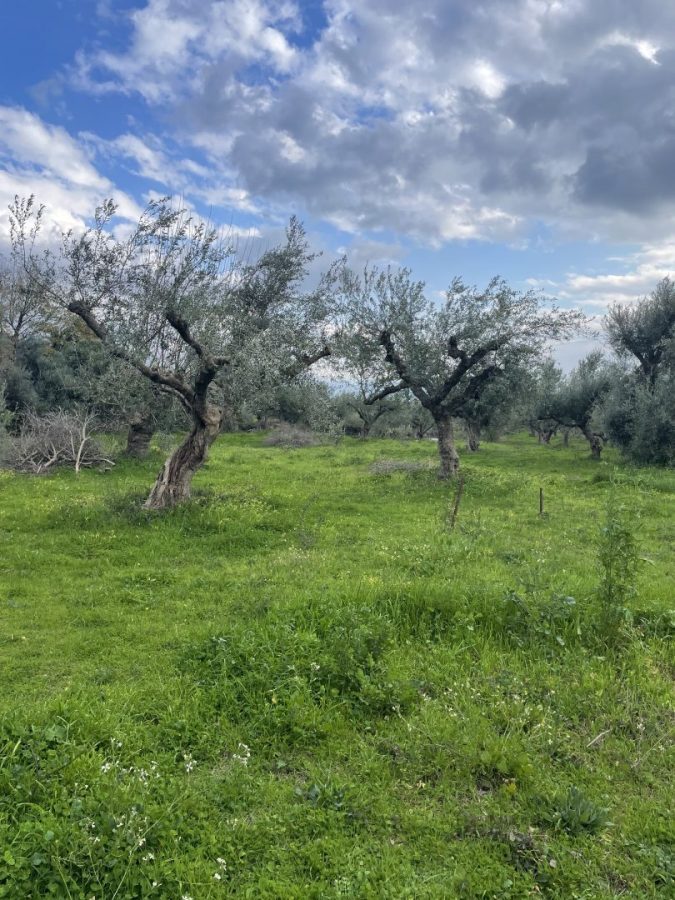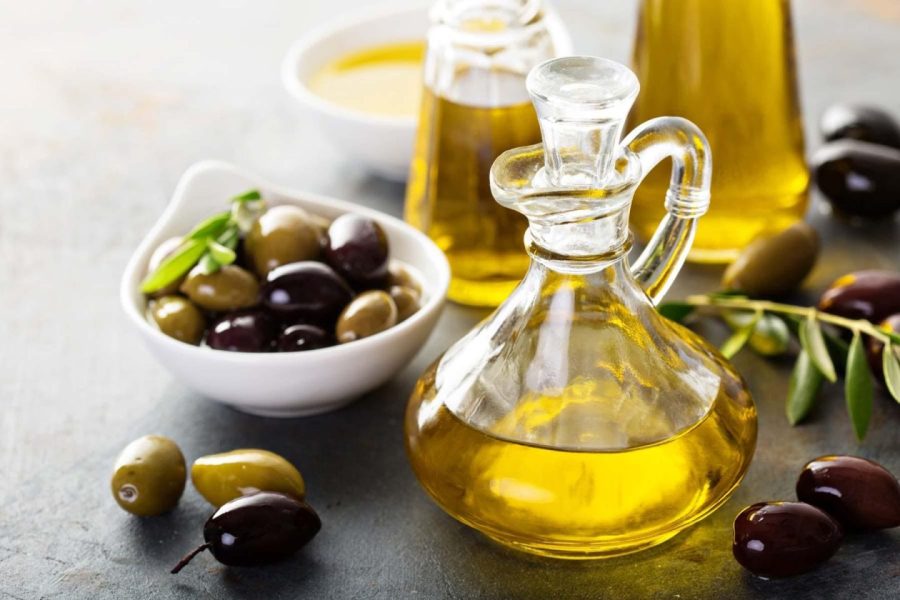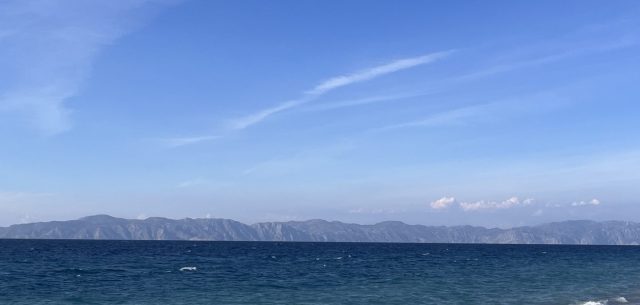A Trip to the Ben Olive Mill: The Secret Behind the Acclaimed Kalamata Olive Oil

The first thing that comes to mind when one thinks of Greece is the Parthenon. For Kalamata, a town in western Greece, its claim to fame is its world-famous olive oil. As Leah Beller discovered on a trip to the family-owned Ben Olive Mill, the purest olive oil is made via hand processing.
We got off the tour bus on a sunny but chilly day in Parapougki, a town 45 minutes north from Kalamata, unsure of what to expect. We were going to be visiting the Ben Olive Press – a family-owned olive estate and mill, which, according to Ben himself – is the largest grove in Greece. Ben’s great grandfather had started the farm, which was then passed down through the generations.
We stood in a beautiful grove of Koroneiki olive trees, and listened while Ben explained how more people going to university increased the already near-impossible challenge of getting people to help with the arduous task of harvesting the olives. “How many of you are in university?” he asked. We all raised our hands. Then, “how many of you would want to drop out of university to help pick olives?” We all chuckled with a light grimace when no one raised their hands to that question.
Ben discussed how the automation of natural processes – such as the one required to make olive oil – has made even fewer people want to do it manually. However, he stressed the importance of doing it by hand, saying that the resulting olive oil was far better than anything we’d find in a store. He told us that after the tour, we would have a tasting to see which olives were processed by hand, and which by machine. We continued on with the tour and stopped at a tree, which Ben told us was the oldest on the farm, dating back several hundred years.
Next was the tasting. We all walked into a large room, full of machines used to make olive oil. Behind us were large containers said to hold 100 L of the liquid. We sat down at several tables, all clad with checkered tablecloths and graphs showing the range of olive oil flavors. In front of us was a basket of bread and shot glasses filled with olive oil. Ben and his wife then instructed us to try the olive oil by taking a sip of it and breathing in while it was in our mouths to get the full aromatic and tasting experience. These olives, we were told, are known for their low acidity and fruity taste.

There were three samples of olive oil for us to try, one that was factory made, one from America, and one from Kalamata olives. The first task was to figure out which was which. We tasted the first one, which was good, but a bit lackluster; the second, which had brilliant flavor and a slightly peppery aftertaste; and the third, which tasted like normal olive oil. We all correctly guessed that option two was the Kalamata olive oil.
Ben explained how, in Kalamata, they use olive oil as a flavor source when cooking and not just “as something you Americans use to grease your pans when frying an egg.” His wife then explained how olive oil had purposes beyond cooking, informing us that it could be used as a hair or face mask, if mixed with some sugar. However, cosmetic uses are not the sole place where one can see olive oil’s efficacy and benefit. Ben told us that Kalamata was one of the two remaining green zones – places with the highest life expectancy – in the world. He, of course, credited this fact to olive oil.
The Ben Olive Mill: Parapougki, Andania, 240 08, Greece +30 2724 032371 | olive.tour.tasting@gmail.com | benolivemill.gr












